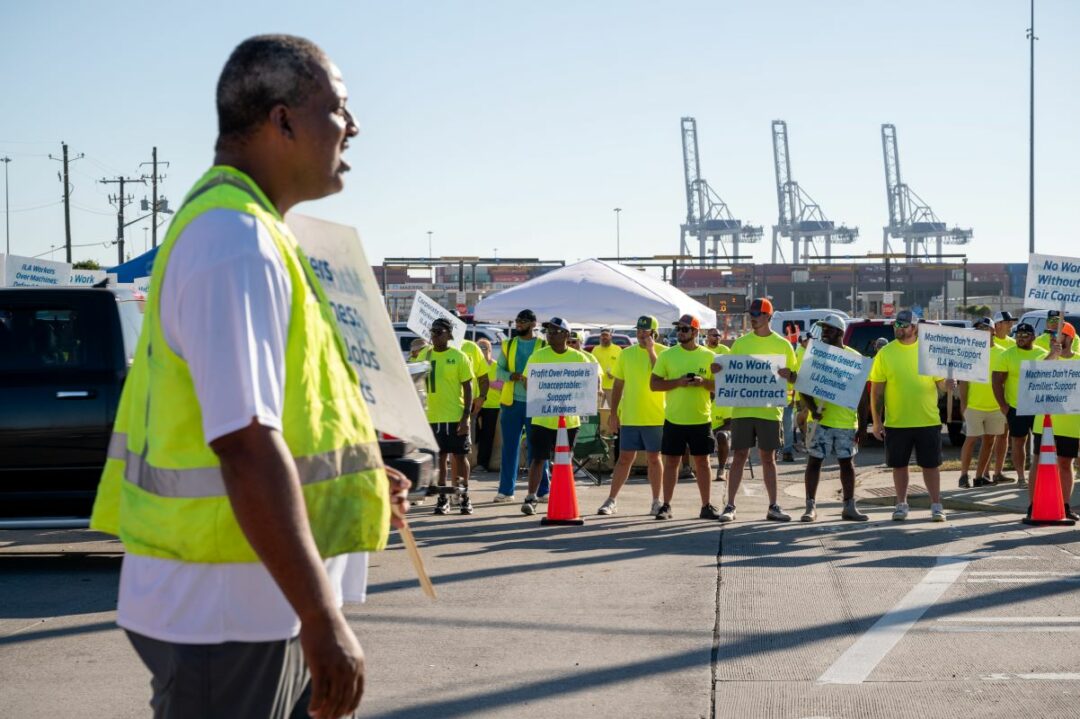
Visit Our Sponsors |
|
|
|
|
|
|
|
|
|
|
|
|
|
|
|
|
|
|
|
|
|
|
|
|
|
|
|
|
|
|
|
|
|
|
|
|
|
|

Photo: Bloomberg
Leaders from the International Longshoremen's Association (ILA) and the U.S. Maritime Alliance (USMX) are set to resume contract talks on January 7, as the threat of a strike looms, according to a person familiar with the negotiations.
Facing a mid-January deadline to reach a deal, the planned talks are a welcome sign for importers and exporters bracing for a labor disruption that would shut every major port on the U.S. East and Gulf coasts. Those gateways account for roughly half of all the country’s container volumes, according to data compiled by the American Association of Port Authorities.
But the issue of whether employers will be allowed to add semi-automated machines to port terminals under the next labor contract may once again prove difficult to resolve.
In early October, the ILA reached a tentative deal with ocean carriers and terminal operators on a 62% wage increase over six years, suspending a three-day strike but leaving the technology issue unresolved.
“Let’s hope the parties can actually get a deal. If not, they must do another extension to avoid a strike,” Jonathan Gold, vice president of supply chain and customs policy at the National Retail Federation, wrote in a January 1 on X, the social-media site formerly known as Twitter.
The resumption of talks was reported earlier this week by the Journal of Commerce.
December Stalemate
After meeting for just two days in November, the ILA and the USMX declared an impasse over the use of semi-automated, rail-mounted gantry cranes at port terminals, threatening another stoppage when the temporary extension expires on January 15.
Such equipment is permitted in the current contract and is already in use at some ILA-operated terminals, but union President Harold Daggett has said he won’t accept a contract that allows for any degree of automation, which he sees as a threat to dockworker jobs.
President-elect Donald Trump, whose inauguration is set for January 20, has voiced his support for dockworkers in their fight against automated machinery.
The USMX maintains the technology at issue does not harm longshore employment, and such modernization is necessary to keep U.S. ports — and the broader economy — competitive.
RELATED CONTENT
RELATED VIDEOS
Timely, incisive articles delivered directly to your inbox.






